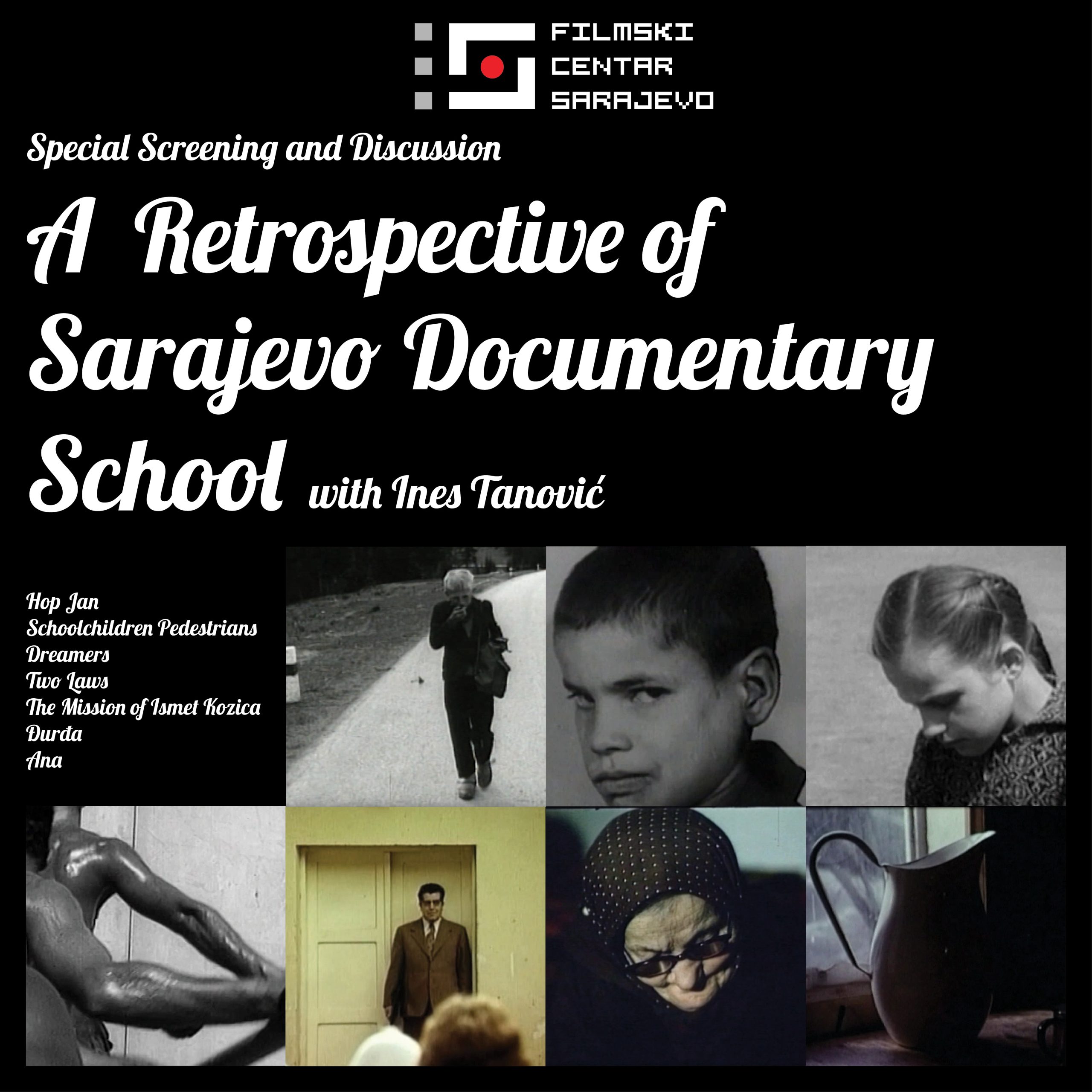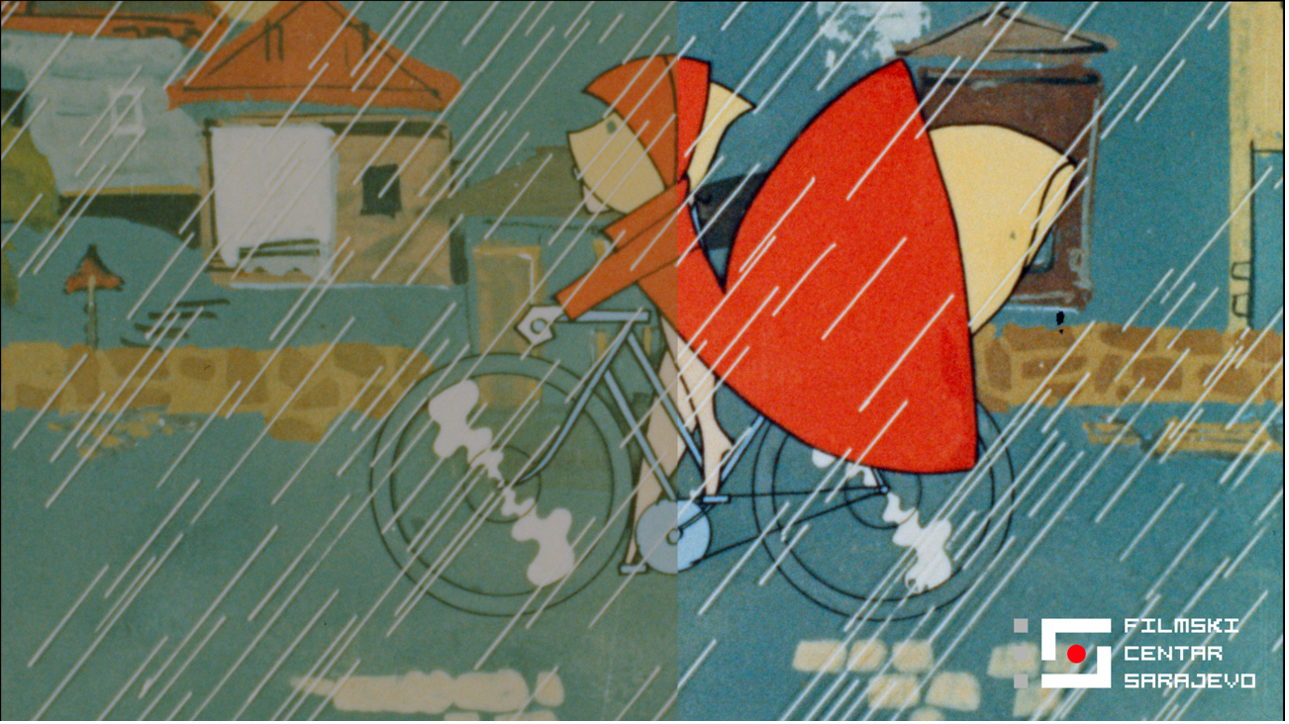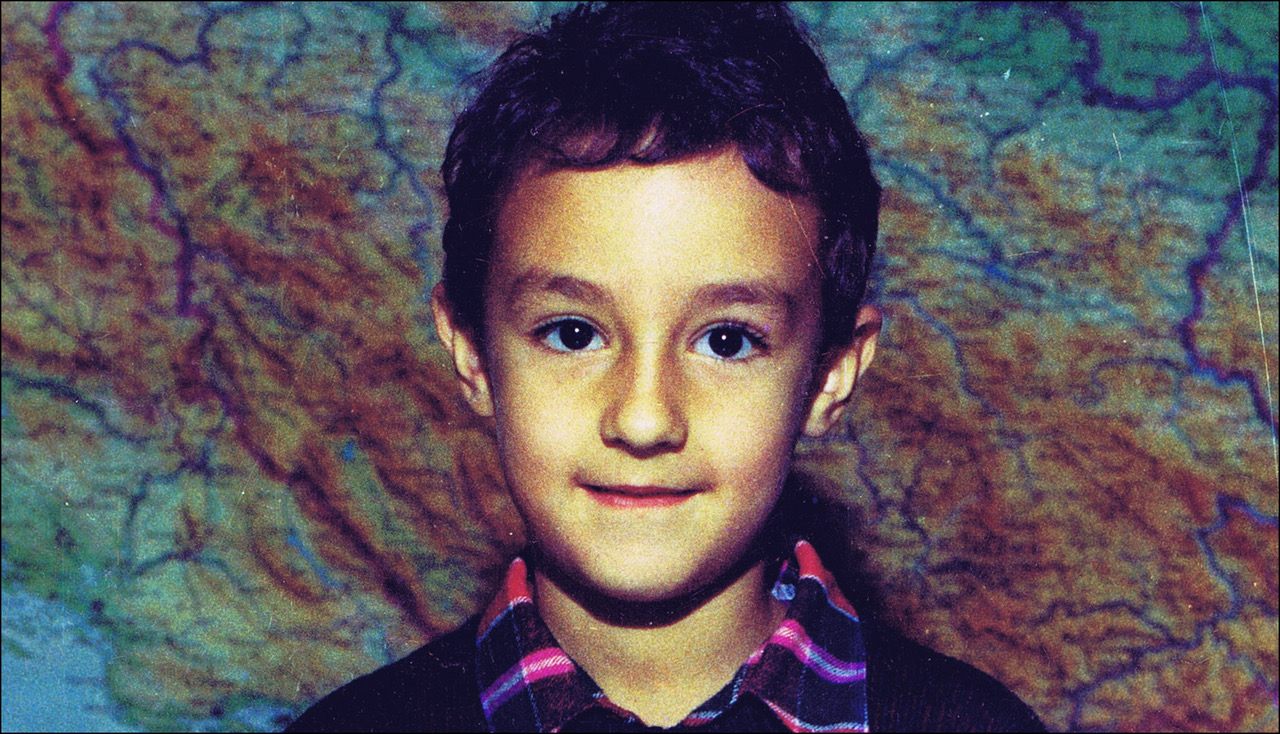
Film Screening & Discussion. Sarajevo Documentary School Retrospective with Ines Tanović
Note: Registrants will receive a link to independently view the films prior to the live event. The event on February 18 is a discussion and will not include a screening of the films.
Date
February 18, 202212:00 pm – 1:30 pm
Location
Online
Please join the East Central European Center at the Harriman Institute, Film Center Sarajevo, and the 2022 Bosnian-Herzegovinian Film Festival for a special virtual screening of a selection of short films from the Sarajevo Documentary School and a live discussion with Ines Tanović and Dijana Jelača, moderated by Tanya Domi.
Co-curated by the director of Sarajevo Film Center, Ines Tanović, and film scholar Dijana Jelača, these selected short films from the famed Sarajevo Documentary School were made by a number of notable filmmakers in Yugoslavia in the 1960s, 1970s and 1980s. The films tackle various themes of social justice, from workers’ rights, to children’s precarity and gender equality. Tanović and her team have been hard at work digitally preserving these unique films which are invaluable documents of Yugoslavia’s and Bosnia’s cinematic and cultural heritage.
Screening Selections
Total running time: 95 minutes
Hop Jan (Vlatko Filipović, 1967, 11 min)
One man, one street, one bridge, one statue. Good, bad, inflexible, weak or perfect – everything exists in its own form, finished and unchangeable. But it started somewhere.
Schoolchildren Pedestrians (Đaci pješaci, Vefik Hadžismajlović, 1966, 10 min)
The film follows rural schoolchildren on their long and arduous trek to school. Every day they have to journey for several kilometers—partly through fields, partly on a windy open road. They always make it to school on time.
Dreamers (Sanjari, Vefik Hadžismajlović, 1971, 10 min)
As the director described it, Dreamers was conceived as a small operetta. Its protagonists are street children in Sarajevo. On the streets, various parts of the city, and in movie theaters, one experiences mass culture from the children’s point of view.
Two Laws (Dva zakona, Milutin Kosovac, 1968, 14 min)
In some parts of Bosnia-Herzegovina, especially in its eastern parts, there are schools attended only by boys. The parents are of the opinion that girls do not need education, despite Yugoslav laws that stipulate that education is obligatory for everyone. The girls are caught in between these opposing convictions.
The Mission of Ismet Kozica (Misija Ismeta Kozice, Petar Ljubojev, 1977, 22 min)
As a small factory grows bigger, a young worker Ismet Kozica frequently visits mountain villages in order to find new female workers. This is not an easy mission. He first has to convince the girls’ parents. After that, his second task awaits: he needs to adequately prepare the young women for the life outside the isolated villages in the mountains.
Đurđa (Mirza Idrizević, 1978, 11 min)
Deep in the woods, in a community gathered around wood chopping, lives Đurđa. She is the only woman in a world of men. In the community, she does all the house chores alone. The film is a document of her life and labor.
Ana (Mirjana Zoranović, 1984, 17 min)
Many people moved to the cities in search of a better life, but Ana remained in her village. She takes care of her livestock and works the land, paying no heed to her advanced age and frail body. This is her life and a tradition she does not want to abandon.
Biographies

Ines Tanović is the Director of the Film Center Sarajevo and the founder of the production company Dokument Sarajevo. She is also a former President of the Association of the Bosnian-Herzegovinian Film Workers. Ines is an accomplished director who made a number of films, both narrative and documentary. Her documentaries include Exhibition (2010), The Living Monument, (2012), Coal Mine (2012), and A Day on the Drina (2011). Her feature narrative debut Our Everyday Life (2015) was Bosnia’s official entry for the Academy Awards. In 2019, Ines completed her second narrative feature, The Son, which had its world premiere at the 25th Sarajevo Film Festival and was another official Oscar candidate from Bosnia-Herzegovina. She lives and works in Sarajevo.

Dijana Jelača teaches in the Film Department at Brooklyn College and at the Feirstein Graduate School of Cinema. She has published widely on feminism and film, as well as on gender and trauma in (post-)Yugoslav cinema. Jelača is a programming co-director of the Bosnian-Herzegovinian Film Festival in New York City.
Article published at The Harriman Institute At Columbia University


